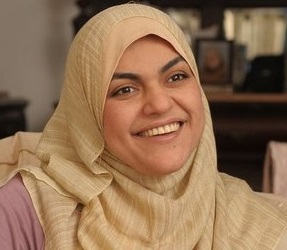
(Photo provided by Ibrahim Halawa’s family)
In the aftermath of the violent events seen around Egypt on 14 August 2013, especially in Rabaa Al-Adaweya Square, marches were planned to convene on Ramses Square in the heart of downtown Cairo in support of Mohamed Morsi and in opposition to the violence from two days before.
The day produced disturbing and desperate images as people were seen jumping off bridges to escape the gunfire that occurred on both sides of the river Nile. Hundreds had gathered in Ramses Square in the shadow of the Al-Fath mosque, which would become the scene of a siege between demonstrators and security forces.
Seventeen year-old Ibrahim Halawa, an Irish citizen with Egyptian heritage, came to Egypt with his three sisters, Somaia, Fatima and Omaima, following the ouster of former President Mohamed Morsi in July 2013. They joined the protest camp in Rabaa Al-Adaweya and witnessed the violent scenes from the days before.
Halawa’s sister, Somaia, told Daily News Egypt it was “humanity” that drove her and her siblings to Ramses Square that day, saying that “people saw horrible things at Rabaa”.
When the siblings arrived at Ramses Square they were confronted with a chaotic scene as the police had already moved to disperse the demonstration. Smoke could be seen from afar with an armed forces helicopter hovering over the square in the afternoon. By the end of the day at least 173 were dead nationwide as a result of the persisting violence.
Halawa and his sisters ran into Al-Fath Mosque, which was being used by protesters as a refuge, field hospital and morgue at the time. Some demonstrators requested to be escorted out but then faced attack by civilians, so many opted to stay inside the mosque.
The security forces entered the mosque and evacuated those inside, making 385 arrests, including Halawa and his sisters who became separated only to meet again in Tora prison.
A year later Halawa is still in prison and the trial session he has waited one year for was suspended last week. The suspension came after the judge in the case recused himself after one of the defence lawyers objected to the defendants being held in a glass box. Halawa was not present at the session, as there are a total of 492 defendants in the case and not all those in custody were able to attend due to lack of space.
Somaia and her sisters were released after being held for two months. She said that the judge told them: “’I hope you have learned your lesson’”.
Halawa, now 18 years old, remains in prison, having been transferred from Al-Marg prison to Tora prison last week. He receives weekly visits from his mother and one of his sisters, and “is always happy when these visits occur”. The family fear that in the wake of the sentencing of three Al-Jazeera English journalists – of which two are foreign passport holders – to seven years in June, that Halawa will receive a jail sentence.
Halawa and other inmates began a hunger strike last Wednesday, drinking only water, in protest of his continued detention. “It’s not just his mental state but his physical well being,” said his sister.
In a letter written by Halawa provided to Daily News Egypt by the family, he describes how he and other inmates were beaten and dragged down a set of stairs when they insisted on seeing the judge in the hearing last week. In his letter Halawa vowed to continue his hunger strike until he is released.
Somaia called on the Irish government and the European Union “to bring him home before any other action is taken”. She also expressed her disappointment with the Irish government and the EU for not putting enough pressure on the Egyptian government. She said the family will hold them, and the Egyptian authorities, fully responsible if anything is to happen to her brother.
Halawa ended his letter: “We will all meet very soon, it’s a dark tunnel that will end with light”.


